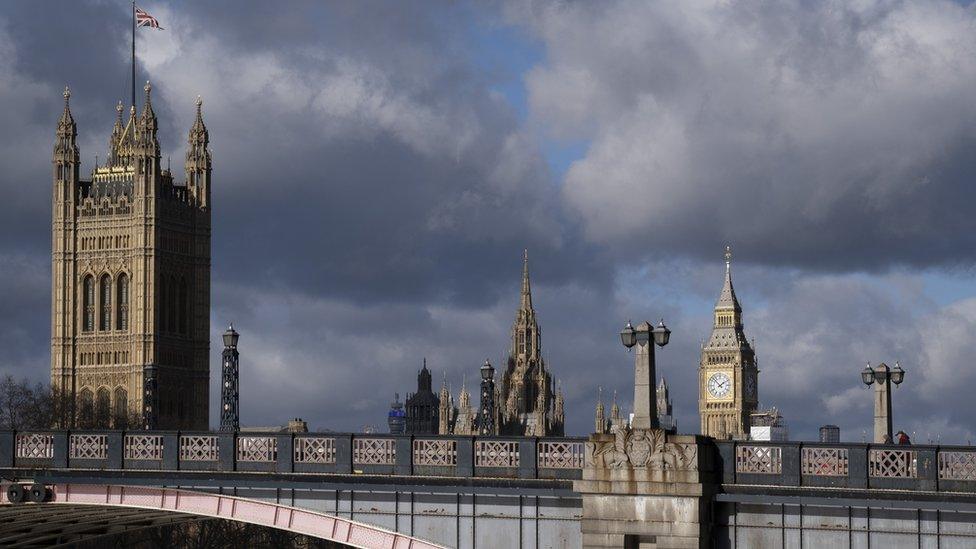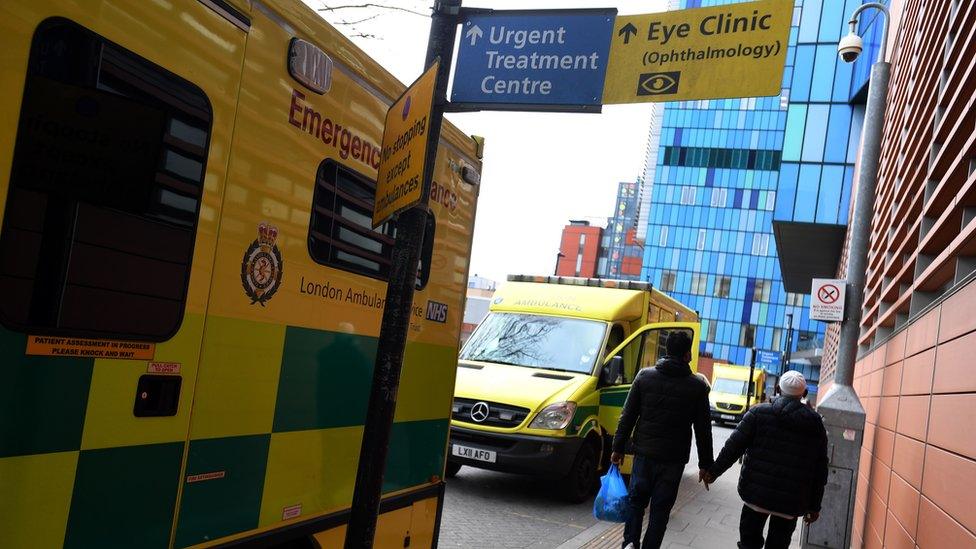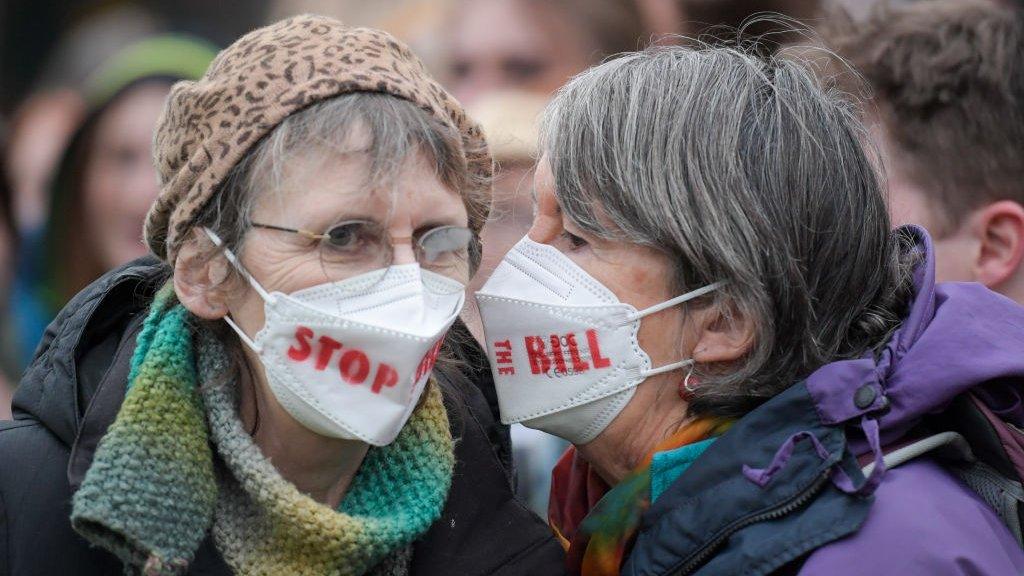What's happening in Parliament next week?
- Published

There's plenty of legislative heavy lifting scheduled in Parliament, but much of it could be scrapped or re-arranged, depending on events in Ukraine.
The Commons will expect to hear from ministers, and probably from the prime minister, as events unfold.
And there may be further moves to implement sanctions on Russia, to be debated at short notice.
Events like Wednesday's opposition day debate, and Thursday's general debate on Welsh Affairs could be rescheduled.
Committee action includes Foreign Secretary Liz Truss giving evidence on Wednesday.
Meanwhile, it's showtime in the House of Lords, where peers, fresh from their wholesale rewriting of the Police, Crime, Sentencing and Courts Bill, are poised to do something similar to two more major pieces of government legislation: the Nationality and Borders Bill and the Health and Care Bill.
On the latter, look out for major amendments on the central issue, the cost-cap rules for paying for social care.
And there will also be important amendments on NHS workforce planning - with former Conservative health minister Lady Cumberlege re-tabling an amendment proposed by former Health Secretary Jeremy Hunt in the Commons.
There will also be amendments on the powers the bill gives to the government over running the NHS in England, where another Conservative former Health Secretary, Lord Lansley, has co-signed an amendment alongside Labour's Baroness Thornton.
There will also be a lot of government amendments reflecting concessions by ministers on a variety of issues, including on children's health, mental health equality and preventative care.

The Health and Care Bill will implement long-term government plans to change how NHS England is run
I'm not sure I have enough space to list all the likely changes peers may wish to make to the target-rich environment that is the Nationality and Borders Bill - where much of the opposition is directed at proposals that, its critics say, contravene the UK's international treaty obligations to refugees.
There may be direct attempts to strike down, rather than merely amend, some of these.
In particular, there is much discussion about the proposals for offshore processing of asylum seekers in other countries.
And watch out for the amendment proposed by Lord Judge, the former Lord Chief Justice, which would assert that nothing in the bill should be taken to contravene international conventions on refugees, in effect leaving the courts to sort out what powers the bill would, in practice, confer on the home secretary.
As I write, it is still not clear which sections will be debated when - but there looks certain to be a vote on proposals from child refugee campaigner Lord Dubs for safe routes for family reunion, allowing unaccompanied children to join a family member in the UK.
Police powers
Look out too for an amendment from Baroness Lister on citizenship routes for Chagos Islanders, picking up a proposal from Conservative MPs in the Commons.
And there's also Baroness Stroud's amendment on the right to work, which may well command broad support from around the House if pushed to a vote.
In the Commons, MPs will spend six hours considering Lords amendments to the Police, Crime, Sentencing and Courts Bill.
Some were made by the government, with cross-party support, but ministers suffered 20 defeats on other detailed issues, including on the policing of protests and the repeal of the Vagrancy Act - where the government is now poised to offer its own version of that proposal.
Some of the defeats were on government attempts to add in new public order offences, and because these were not in the bill to start with, MPs won't get a chance to reverse them. They may well resurface in a free-standing Public Order Bill, in the next Queen's Speech.
Ping-pong looms
A significant chunk of the parliamentary action over the next few weeks will be on legislation bouncing between the Commons and the Lords, until its final form is agreed between them.
This is the fabled process of parliamentary "ping pong", which can see the government, through its Commons majority, accepting some amendments, but rejecting others, or offering some form of compromise (known in the trade as "amendments in lieu").
Peers then decide if they will back down, and accept the removal of their changes to bills - which they often do, on the argument that they've asked the Commons to think again, and it has come to the same conclusion, and they are, after all, the elected House.
But sometimes, they push back and offer a marginally watered-down version of the same amendment, and bounce it back to the Commons.
And, when the government is against the clock, perhaps with a prorogation of Parliament due - and one is expected in late April/early May - ministers can be under pressure to make some concessions to get their legislation done, and to make them early, rather than dropping in new amendments at the last possible moment, the third reading stage.
The result can be a parliamentary High Noon, with much behind-the-scenes negotiation, as well as much posturing in both Houses; and there's going to be a lot of it in March and April.
Related topics
- Published28 April 2022

